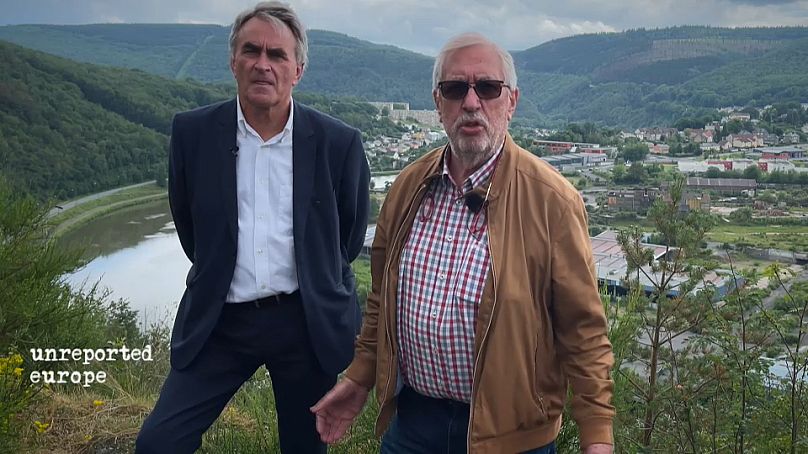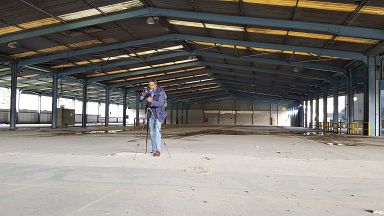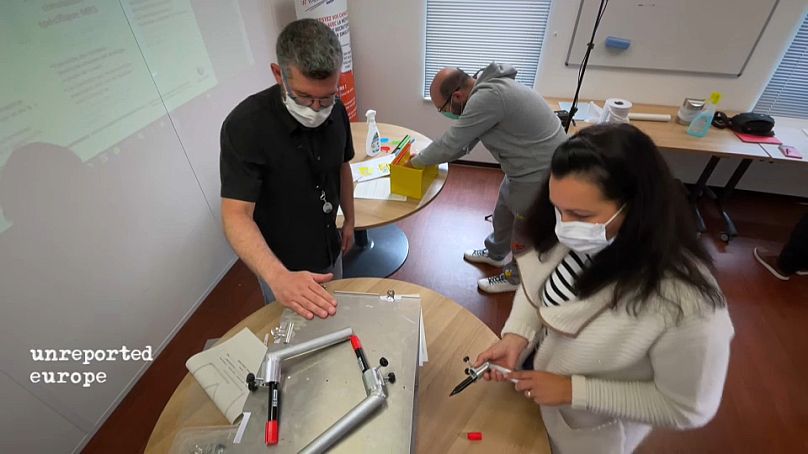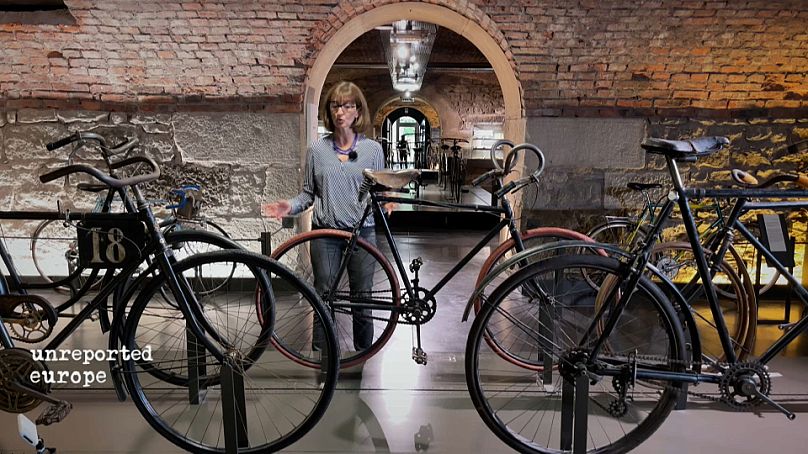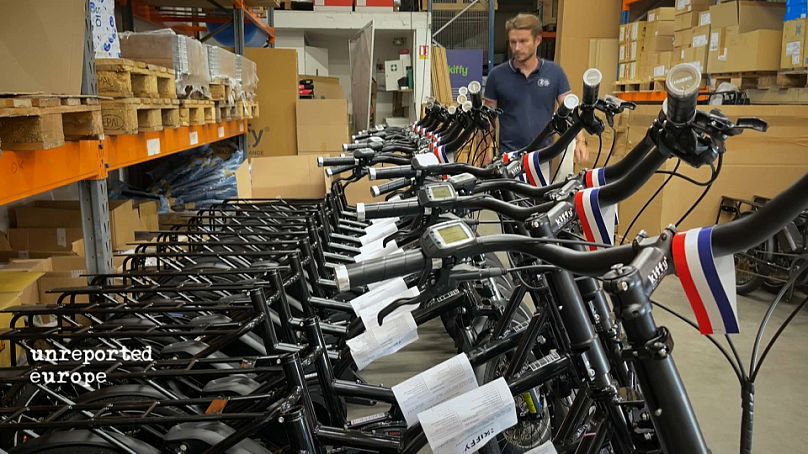'Made in Asia’ dumping methods have damaged Europe’s industries. Can the European Union rescue the ‘made in Europe’ market and save European jobs? Unreported heads to France to take a look at the bike industry and its European comeback.
Decades of industrial relocation to countries with low production costs have caused damage to many regions in France. In the small town of Revin, closed shops, houses for sale and industrial wastelands are just some of the signs of this decline.
 ADVERTISEMENT
ADVERTISEMENT
 ADVERTISEMENT
ADVERTISEMENT
But good news is on the horizon, a major bicycle producer has announced it's coming back.
Anti-dumping tariffs
The EU has laws to fight unfair competition. To better safeguard industry, the European Commission introduced anti-dumping tariffs in some sectors.
These tariffs are used to protect EU members from foreign imports that they consider to be priced below fair market value.
Reviving a former industrial town
The mayor of Revin, Daniel Durbecq, and the President of the municipalities association, Bernard Dekens, both welcome this protectionist policy.
Dekens thinks that they need to protect themselves, "it's obvious that we cannot go on like this, selling our industry to China and South East Asia", he explains.
Durbecq agrees and tells us that in the 1980s and 90s, Revin's population was 12 500, double what it is now. He also highlights the high unemployment rate which currently stands at 27%.
Both of them are happy to see the historic French bicycle brand, Mercier, come back to France from South East Asia and settle down in Revin. "It proves that industry is not dead in the Ardennes region and that it is possible for a company that relocated abroad a few years ago to come back and to produce in France", Dekens adds.
Mercier's plan is to produce half a million bicycles annually and launch production next year. The 11 million euro investment to do so is heavily subsidised by French and European taxpayers.
A market gateway
However, many of the bike components are still made in Asia. That’s why the production site is close to the ports of Rotterdam and Antwerp. It will give the company easy access to key markets.
Maryline Le Maou is a Senior Project Manager at Ardennes Development. She tells us that this region is "close to big European countries, it's the gateway to northern and eastern Europe and a market of 110 million people".
Creating jobs
The new bike factory will create 270 jobs in the small French town. Days after this news broke, the local job agency received hundreds of applications. One of them was Stephanie's.
She took us to an open day at the unemployment office to check out their innovative recruitment method: job seekers' skills will be tested by simulating work like welding.
Stéphanie tells us that "a lot of people moved away because of unemployment". She hopes and expects that the factory opening "will bring back quite a lot of people".
Some of the job seekers remember the site where the factory will be before it became an industrial wasteland. When the factory where Michael Brioso worked closed, his endless search for employment began.
He thinks the factory will be great for him because it's local, so he won't have to keep moving around like he currently is with the temp work he was able to find.
Mercier is responding to a surge in European demand for both regular and electric bikes. But Jean-Marc Seghezzi, the CEO in charge of this return to France is not in favour of anti-dumping tariffs on countries outside the EU.
"Anti-dumping tariffs are just a smokescreen", he explains. He argues that it’s difficult to embrace anti-dumping tariffs when 80% of their component producers are in Asia.
"I think we really need to consider how we can relocate that production to Europe or how we can encourage global producers, Asian producers, to make them in Europe", he adds.
A historic bicycle industry
Saint-Étienne was home to France's once-booming bike industry. In the 1920s, thousands worked in the local bike factories there.
Joelle Virissel, the culture mediator at its Museum of Art and Industry, knows all about the rise and fall of the city’s industrial past.
She explains that the first French bikes were produced there by the Gauthier brothers in the late 1800s and that's when the city's big industrial life began.
Saint-Étienne was where a multitude of ideas was born, patents were filed and gear-changing inventions came to life.
According to her, "the 1920s were really the golden age of bicycles, but in the 70s, due to economic changes, relocation and growing competition from foreign factories, Saint-Étienne was not able to keep up".
Made in France
But it's not all bad news. A local start-up called Easy Design Technology has honored and revived this lost local industry with a bicycle designed for families with children.
Its co-founder, Patrice Faivre, says that they only work with locals and so that has helped them to be "more agile and flexible". He believes that if any modifications need to be done "it’s easier to work directly with local people instead of exchanging emails - and perhaps having to travel to factories in China, for example, to get the products made".
Sales Director, Thibaud Vignali explains that their main objective is to make bicycles that are really made in France at a price that is similar to competitors.
Sky-rocketing transport fees, climate concerns and changing consumer habits combined with clever marketing and solid industrial know-how have sparked this new European trend. Highly experienced men, like Hani Mohamed a welder at the startup, are behind this “made in Europe” success story.
He reminds us that working with aluminum "is all about craftsmanship" and that it's not easy for everyone.
Anti-Dumping tariffs - yay or nay?
Is this new boom in the bike industry triggered by the demands of a growing market or did the EU anti-dumping duties help?
To Aurélien Bonnet, the Technical Director at Easy Design Technology, it's what helped the company make its choice to focus on producing locally and within Europe.
As for Vignali, he is happy that France and Europe offer this kind of protection for local industries. The anti-dumping tariffs are one of the factors that have allowed Mounir, one of the company's young members of staff, to take a leap of faith and sign his first permanent work contract with them.
Some welcome anti-dumping tariffs while others oppose them due to their dependence on parts from Asia.
This difference of opinion may cause bumps on the road ahead.











